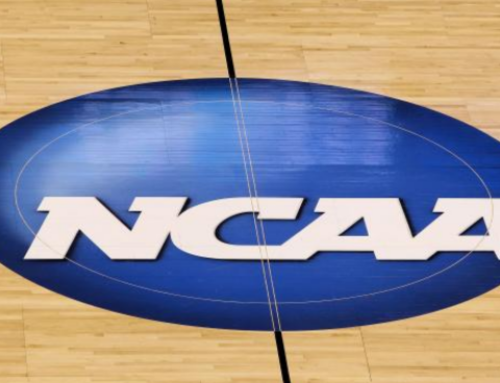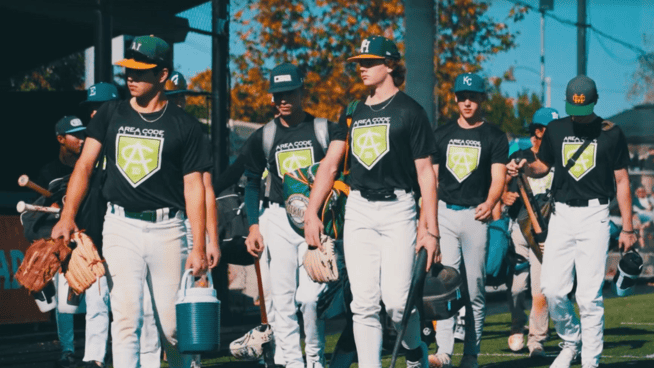How a Bad Game Affects Your Recruiting Status
At some point, a volleyball player might feel the added pressure of a college coach sitting in the stands and analyzing her game. You want to be great, you want to show your skills and you want to prove you deserve an offer. And then—tweet tweet!—the final whistle blows and you realize you didn’t put your best foot forward. You had a bad game. This can be a defining moment in the recruiting game. What happens next?
Believe it or not, players usually think they played worse than they really did. Coaches are realistic, and they know every player has bad games or off nights. It’s how a recruit responds that can help or hurt her chances moving forward.
Most coaches are not “one and done” recruiters. If the recruit is someone they came to see specifically, they will keep watching. Coaches actually like to see what happens when recruits get into tough situations (e.g., losing, playing poorly, bad referee calls). How a player responds to those situations shows their character and maturity. If a player whines and sulks about the situation and treats coaches and teammates with disrespect, most college coaches will write them off for good. But a player who comes back strong in the next game or match and has a positive attitude will still be attractive to recruiters.
RELATED: Volleyball Recruiting: Why Hasn’t the Coach Called Me?
Coaches can see physicality on the court. They can see athleticism, hustle, body control and general skill knowledge. They watch warm-ups for technique. They watch matches to see a player’s ability to combine skills and her volleyball IQ. They look to see if there is confusion and chaos or poise and composure when the player is on the court. Is the team stronger or weaker when the player is on the floor? Even if a player is having a bad game, a coach can still like certain traits of a recruit.
In most cases, coaches will be able to watch a player for more than one match over a recruiting weekend. However, if the coach comes to only one match—the one that’s bad—there are a few things you can do. The recruiting coach will likely talk with your coach to find out what is going on. Was it nerves, an illness or maybe just an “off” night that caused the bad game?
After a bad match, recruiting coaches want to see more film. They come in the first place to watch some aspect of a player’s game, and they will want to see it again. Recruits should send unedited game film to the recruiter, so the coach can see both the good and the bad of a player’s game.
Volleyball recruits should reach out to coaches regardless of whether they can respond or not (due to age and NCAA rules.) First, thank the coach for spending his or her valuable time coming to your game. Second, acknowledge your poor play, but do not make excuses. Most coaches want to read about or hear your goals for the next match and how you will reach those goals. Players should reach out—not their parents. While it is OK for parents to send a quick note of thanks, the player is the person the coach really wants to hear from. Many times players will have a coach come see them play and then disappear from communication.
RELATED: Volleyball Recruiting: Searching for More Than Talent
Kathy Jewel, the Recruiting Coordinator for Purdue University, loves to hear from players. “I want to know, good game or not, that the player is interested in Purdue just as much as we are interested in them. I will watch a player; they will go silent and not return my request for calls, so I will assume they are not interested. Too many times players tell me they are interested after we have moved on because they fell out of communication, not because they had a bad game.”
All in all, volleyball recruiters do not base their recruitment of a player on one game. Demeanor, volleyball IQ, talent, skill and coachability are all taken into account when a coach recruits a player. Don’t fret after one bad game. A player’s character is revealed in difficult situations. Deal with a bad game with class and make a change for the better the next time you step out on the court. The coaches are watching.
Find out if you have what it takes to play at the next level. Click on the link below to access the “BeastMeter App.” It will score your last 12 months of athletic accomplishments and project your college playing level. Your recruiting starts with understanding where you are. Find out now at BTBRecruiting.com.
[cf]skyword_tracking_tag[/cf]RECOMMENDED FOR YOU
MOST POPULAR
How a Bad Game Affects Your Recruiting Status
At some point, a volleyball player might feel the added pressure of a college coach sitting in the stands and analyzing her game. You want to be great, you want to show your skills and you want to prove you deserve an offer. And then—tweet tweet!—the final whistle blows and you realize you didn’t put your best foot forward. You had a bad game. This can be a defining moment in the recruiting game. What happens next?
Believe it or not, players usually think they played worse than they really did. Coaches are realistic, and they know every player has bad games or off nights. It’s how a recruit responds that can help or hurt her chances moving forward.
Most coaches are not “one and done” recruiters. If the recruit is someone they came to see specifically, they will keep watching. Coaches actually like to see what happens when recruits get into tough situations (e.g., losing, playing poorly, bad referee calls). How a player responds to those situations shows their character and maturity. If a player whines and sulks about the situation and treats coaches and teammates with disrespect, most college coaches will write them off for good. But a player who comes back strong in the next game or match and has a positive attitude will still be attractive to recruiters.
RELATED: Volleyball Recruiting: Why Hasn’t the Coach Called Me?
Coaches can see physicality on the court. They can see athleticism, hustle, body control and general skill knowledge. They watch warm-ups for technique. They watch matches to see a player’s ability to combine skills and her volleyball IQ. They look to see if there is confusion and chaos or poise and composure when the player is on the court. Is the team stronger or weaker when the player is on the floor? Even if a player is having a bad game, a coach can still like certain traits of a recruit.
In most cases, coaches will be able to watch a player for more than one match over a recruiting weekend. However, if the coach comes to only one match—the one that’s bad—there are a few things you can do. The recruiting coach will likely talk with your coach to find out what is going on. Was it nerves, an illness or maybe just an “off” night that caused the bad game?
After a bad match, recruiting coaches want to see more film. They come in the first place to watch some aspect of a player’s game, and they will want to see it again. Recruits should send unedited game film to the recruiter, so the coach can see both the good and the bad of a player’s game.
Volleyball recruits should reach out to coaches regardless of whether they can respond or not (due to age and NCAA rules.) First, thank the coach for spending his or her valuable time coming to your game. Second, acknowledge your poor play, but do not make excuses. Most coaches want to read about or hear your goals for the next match and how you will reach those goals. Players should reach out—not their parents. While it is OK for parents to send a quick note of thanks, the player is the person the coach really wants to hear from. Many times players will have a coach come see them play and then disappear from communication.
RELATED: Volleyball Recruiting: Searching for More Than Talent
Kathy Jewel, the Recruiting Coordinator for Purdue University, loves to hear from players. “I want to know, good game or not, that the player is interested in Purdue just as much as we are interested in them. I will watch a player; they will go silent and not return my request for calls, so I will assume they are not interested. Too many times players tell me they are interested after we have moved on because they fell out of communication, not because they had a bad game.”
All in all, volleyball recruiters do not base their recruitment of a player on one game. Demeanor, volleyball IQ, talent, skill and coachability are all taken into account when a coach recruits a player. Don’t fret after one bad game. A player’s character is revealed in difficult situations. Deal with a bad game with class and make a change for the better the next time you step out on the court. The coaches are watching.
Find out if you have what it takes to play at the next level. Click on the link below to access the “BeastMeter App.” It will score your last 12 months of athletic accomplishments and project your college playing level. Your recruiting starts with understanding where you are. Find out now at BTBRecruiting.com.
[cf]skyword_tracking_tag[/cf]RECOMMENDED FOR YOU
Create A Free Recruiting Profile Today!
CaptainU helps athletes & parents not only be proactive but also to manage and take control of their entire recruiting journey.










